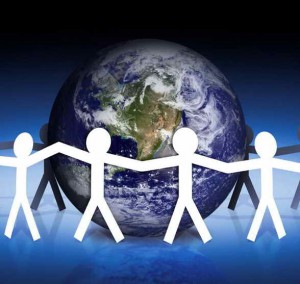 Modern problems of society and political authorities often minimise the nature of the relationship of public power and citizen, because the political regime determines the degree of social freedoms.
Modern problems of society and political authorities often minimise the nature of the relationship of public power and citizen, because the political regime determines the degree of social freedoms.
Studying social world even as it agreed to talk about how a totalitarian regime from authoritarianism and democracy, but attempts to more accurately classify their diversity leveled many intermediate modes of organization and implementation authorities.
The variety of modes is not the result of the destruction of the “Tower of Babel”. Attempts to simplify them or forcibly change, as evidenced by the written history and contemporary realities, only lead to a diversity of forms of oligarchies, democracies and dictatorships.
Plato is the founder of social philosophy, as the enemy of social change, saw the transparency and predictability of public life socio-economic autarchy. Return the Greek society in a relatively calm condition by oznachilo isolation primitive sacrifice source of well-being-trade, and the “Greek miracle” in General. “State” of Plato was the prototype of all utopias, Toe is unworkable plans to improve society. The desire of our contemporaries replace existing political regimes of one kind of a democratic regime had been born the same revolutionary, noble, just a thought.
This is probably meant to Marx in the German ideology: “there is no history of politics, law, science, etc., art, religion, etc”. Aristotle in “Nikomahovoj ethics” referring to its proximity to the teachings of Socrates, flatly disagreed with the conflation of “scientific knowledge” and morality. Recognizing that “… successfully defined benefit as something everyone aspires, “he claims” … It is clear that “benefit” cannot be something comprehensively shared and unified.
Then it was determined would not in all categories, but only one. Not taken into account, for example, that in the category quality benefit is defined as a virtue, in the category of quantity-as a measure in the category is as useful. Identifying good with God and mind, people obrekalsja on the “contemplative way of life”. The same active lifestyle, and this is the essence of Greek civilization, involves the soul. The unit is “the right thing to do.” It defines the three powers of the soul: feeling, mind, desire. To answer the question “what should I do?” one knowledge now little.
Start Act-a conscious choice as a driving reason. “Deliberate choice precedes aspiration and judgment has purpose”. The subject of conscious choice (“conscious desire”) in this case is not the past but the future. The goal of the teaching about the State increasingly is not knowledge, and “establishment of nationals of a certain quality, i. e. the virtuous and beautiful deeds.” Analyzing the mechanism of functioning of “politics” and change of political regimes in dozens of policies, Aristotle distinguishes three correct kind “: Royal power, aristocracy, politiju.
They correspond to the “deviation” is tyranny, oligarchy, and democracy. For example, only the democracies on the dominance of economic activity of the citizens policy he has 4-e Forms. The most stable and fair form of democracy in agricultural policies, rather than engaging in a policy of stable trading and usury. Why? Because the first unites people owning “art making (external and bodily benefits) in accordance with nature” and the second “born gain mainly nasty nature. (L.n. Tolstoy rejoiced to such”).
As a consequence the moral intolerance between virtue and wickedness and the gap between wealth and poverty. And although “internal strife to arise not because of trifles, but trifles; infighting always rise over Affairs important” Aristotle does not call things change. He pointed out: “when creating the most part species polity reigned general agreement about the fact that they are based on law and suggest relative equality”.
Now this is called the principle of legitimacy. Aristotle first in political science is valuenormative approach, according to which political phenomena and processes are reviewed in terms of their compliance with the standards of morality, justice and the common good.
Author Tarkovskiy Vladimir

Thanks, it’s very informative
Thank you for the terrific article
Thanks for the wonderful post
Thanks, it is very informative